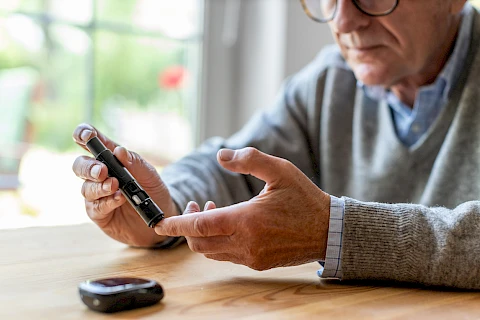
Type 2 diabetes is a common condition among seniors, impacting many aspects of daily life. Managing the condition is crucial for reducing the risk of complications and improving quality of life. One topic that often sparks interest is the possibility of putting Type 2 diabetes into remission, where blood sugar levels remain in a normal range without the need for diabetes medication. While challenging, with lifestyle changes and medical support, seniors may find it possible to achieve this goal.
Type 2 Diabetes in Seniors
Type 2 diabetes occurs when the body becomes resistant to insulin or doesn't produce enough insulin to maintain normal blood sugar levels. For seniors, this condition can lead to symptoms like frequent urination, excessive thirst, fatigue, and blurred vision.
Complications can include heart disease, kidney problems, and nerve damage. Early detection and management of Type 2 diabetes are essential to prevent these complications and improve overall health outcomes.
Lifestyle Changes for Managing Type 2 Diabetes
Managing Type 2 diabetes can be a challenging journey, especially for seniors. The condition affects various aspects of daily life, making it necessary to adopt strategies that promote health and well-being.
- Eating Right: A balanced diet is vital in managing Type 2 diabetes. Seniors should eat a diet of whole grains, lean proteins, and plenty of fruits and vegetables. Reducing sugar and refined carbs is another way to control blood sugar levels.
- Regular Exercise: Physical activities, such as daily walks, gardening, or gentle yoga, can make a big difference. Exercise helps the body use insulin more efficiently, lowering blood sugar levels. Always consult a doctor before starting a new fitness routine.
- Stress Management: Stress can elevate blood sugar levels, so finding ways to relax is essential. Techniques such as deep breathing exercises, meditation, or engaging in hobbies can be beneficial in reducing stress levels.
- Maintaining a Healthy Weight: Losing even a small amount of weight can improve insulin sensitivity and lower blood sugar levels.
- Routine Blood Sugar Monitoring: Seniors should monitor their blood sugar regularly to ensure it stays within a healthy range. This can help them understand how food, activity, and stress impact their blood sugar.
- Regular Medical Check-Ups: Routine check-ups enable healthcare providers to monitor overall health, assess blood sugar levels, and evaluate the effectiveness of management strategies. These visits allow doctors to adjust the diabetes management plan as needed.
Creating a Personalized Plan With Healthcare Professionals
Consult your healthcare provider before making any lifestyle changes. Doctors can create a personalized diabetes management plan tailored to individual needs and health conditions. Set realistic goals and aim for small, achievable changes you can maintain over time. Schedule regular follow-ups with your healthcare team to assess progress and make necessary adjustments to ensure you stay on track.
Make Healthy Lifestyle Choices With Support From Senior Helpers
Putting Type 2 diabetes into remission may not be a walk in the park. However, it is possible for seniors who are committed to making healthy changes. If you’re considering in-home support to assist with diet monitoring, meal planning, medication reminders, or other aspects of senior care, Senior Helpers Bonita Springs can help. We provide exceptional senior home care services through tailored solutions for older adults in Bonita Springs, Estero, and Marco Island. Contact us to learn more!